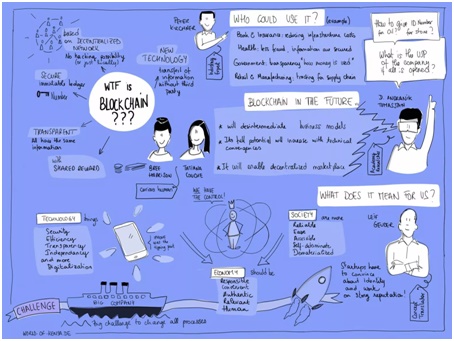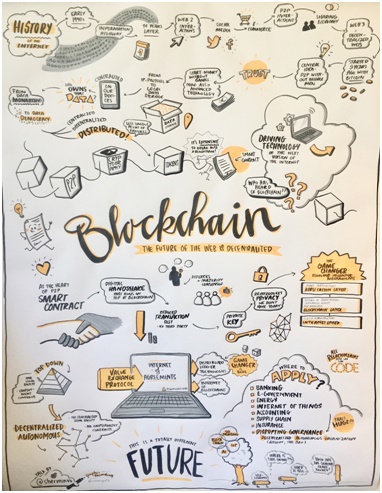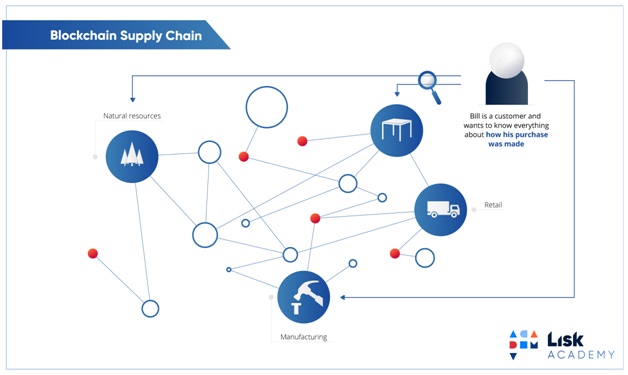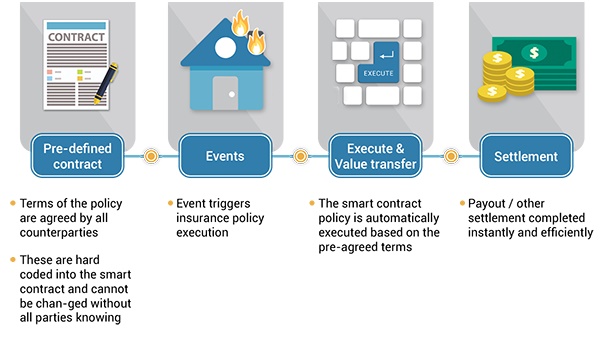
Guest blog post from our Friends at PixelCrayons
Back in the 1990s, nobody ever thought that the Internet would become as huge as it is today. Nobody foresaw the growth and development of Google, Amazon, Microsoft and the other corporate giants of today relying on the potential of the World Wide Web.
If you ever wanted to know what it would have felt like after hearing about the Internet for the first time. Well, you already have a hint of how it feels if you know or have heard anything about Blockchain.
The term “Blockchain” initially gained prominence through its first successful application in the form of the Bitcoin cryptocurrency. While the popularity and value of Bitcoin have soared and dipped quite inconsistently over time, it led to the rise of other cryptocurrencies such as Ethereum and Litecoin. At the heart of these is the Blockchain Technology, which is touted as the next big thing after the Internet.
Do you know about blockchain? Read every you need to know about blockchain

To say that Blockchain is the greatest revolution after the Internet may seem to be a bit far-fetched. For in order to triumph the success of the Internet, Blockchain may have to change the way we live and affect each and every aspect of the daily lives of people. The Blockchain Technology will have to grow into a form that transforms “The age of Information” to something quite different, and something more promising.
In order to dig deeper, let’s look at the future Blockchain on the basis of what it promises to deliver. Such a context is needed in order to understand what really does the Blockchain Technology bring to the table and whether its promises are actually something we need in the 21st century.
The promise of Decentralization

One of the aspects which makes Blockchain so promising is that it creates an environment wherein the records of transactions are not stored in any centralized database. Instead, it’s stored within the devices powering the blockchain itself (termed as “nodes”). So no centralization creates the promise of independence and the absence of middlemen.
Why do we need it?
We live at a time when the rights of individuals towards their own privacy are threatened by corporate giants, which track and store every bit of data in order to “offer us the best possible services”.This is the age where consumers are almost considered the same as any product for obtaining data. Companies feed off of customer data and try their best to trap people into an ecosystem of products and services offered by them.
Are you not sure about the security level of blockchain? Read how blockchain development is making data more secure
While there are both good and bad aspects to this situation. One thing is certain, that the element of trust certainly doesn’t seem to exist when a centralized organization handles all of your data. Blockchain, in this case, can be considered as the replacement of Organizational control over your data. In its place, you’ll be required to trust a set of computer-generated codes to validate and secure your transactions.
Although Blockchain has been said to be a system which would eliminate the need for trust. It still has its set of complications, which could actually make it more of a bane than a boon.
Why don’t we need Decentralization?
While the decentralization aspect of Blockchain would remove the need for trust in organizations. It also takes away the pleasure of any assistance you’d require if in case something wrong happens.
Today’s centralized organizations offer all ways of support and assistance if individuals mess up, and it’s one of the elements which creates a human sense of understanding. Since a Blockchain is a distributed network, there’s no way or source for contact which can solve problems faced by the users of those existing within the network.
Although it’s unlikely to happen, if something causes the network to function in an unintended way, there are little to no ways of rectifying the problem. Such a situation would force individuals to be much more responsible for their actions, and takes away their right to blame a third-party in case of an error.
With no party to blame, it would consequently raise the level of accountability required to be possessed by an individual. This has a chance of further complicating our lives rather than making it easier if not implemented properly.
The Promise of Transparency

The second promise of Blockchain for a better future is that of Transparency. The implementation of Blockchain in financial institutions could lead to a system in which the flow of money is known not just to the institution, but to the individual holding the account as well.
This also eliminates any possibility of data tampering since Blockchain is basically immutable. Once data is entered into it and validated through all nodes, it stays there and can never be removed.
Until now, Banks have had the freedom to allocate and use the deposits in individual accounts in any ways that they could with no information provided to the account holder. Through Blockchain, the flow of money can be precisely tracked by the account holders.
Other applications of Blockchain for maintaining transparency could be in supply chains of farm produce and other organic products. Data recorded on a Blockchain network can be used to track a commodity to its original source. This could potentially ease the work of regulatory agencies and also serve to build the trust of consumers through transparency.
Why do we need Transparency?
Though this isn’t really a question which needs to be asked, yet we can delve into it. To understand why we need transparency, we need to realize that as consumers of different products and services, much of what happens in the conversion process of an input into output is kept hidden. Transparency can lead to an environment where a customer can be able to track and ascertain the source of each and every aspect of the delivery of a product/service.
Though it’s obvious that Blockchain can’t create transparency in all sectors, it still can be beneficial even for its applicability in the sectors such as Healthcare as far as transparency is concerned.
Why too much Transparency can spell Blockchain’s downfall
While Transparency is something the consumers of a product/service can easily appreciate. The same can’t be said about the organizations which serve their interests.
Before you think of a future where all kinds of transactions will be made on a Public Blockchain, that doesn’t seem to be a possibility as Blockchains can be implemented privately as well. Private Blockchains could be considered to be the same as any Blockchain network, except that the decentralization aspect is removed up to some extent.
In private Blockchains, the entry of a new node (a new user to the network) is done by the creation of access points by the organization controlling the Blockchain network. The records are still distributed to the nodes, but the changes and a few parameters of the network would be controlled by a centralized administrator in a Private Blockchain.
In comparison, A public Blockchain allows entry of new nodes without any hindrance, and its records are validated by each of its peers before it is saved on the network. Since the amount of data is so huge in a Public Blockchain, it’s much safer than a Private One. The latter can be hacked, or at least be intentionally limited in its functionality due to the control possessed by the centralized organization managing such a Blockchain.
However, Public Blockchains have their own share of problems as well. While the identity of a node in such a Blockchain can be kept hidden, the records are not. Multiple records created with the same key in a Blockchain can actually give leads to the identity of the user.
But the greatest problem posed by transparency is that it could essentially reduce or increase the value of organizations in an instant! Too much transparency of information can affect a competitive marketplace which thrives on tactics which intentionally hide crucial information.
The promise of “Smart Contracts”

The use of Smart Contracts in Insurance Policies
The use of Smart Contracts is considered the most disruptive aspect of the Blockchain Technology. A “Smart Contract” is essentially a program existing within a Blockchain network. It can be considered as something which automates a transaction based on the fulfillment of a need, which is calculated by the program itself.
The promise of Smart Contracts lies in the fact that it can remove the need for an escrow in negotiations between two parties. Since it’s a program instead of a human third-party, it can be trusted to perform its function more accurately, and the parameters for the fulfillment of a contract can be easily coded into the program.
Why we need it?
The use of Smart Contracts in Blockchain has applications so wide that it can disrupt multiple industries. It’s capable of making tasks such as authentication and contract making easier than ever before.
Not only does it eliminate the need for a middleman to authenticate the transactions. It’s also capable of enforcing contractual obligations all by itself. Thereby making the processing of contractual agreements hassle-free.
The best use of Smart Contracts can be in the form of Crowdfunding. If you know of platforms such as Kickstarter and Patreon. You’d have an idea of how they work. Basically, the funds are collected by the company acting as a third-party between the agent in need of funding, and the people providing funds for the fulfillment of a need.
The use of a smart contract here can perfectly negate the need for a third-party to control the flow of funds. If such a crowdfunding is implemented on a blockchain through a smart contract. The program would collect and store all the funds, and transfer it to fund receiver if the funding goal is reached.
In the same manner, the funds could also be sent back to the supporters in case the plan of the project fails. All of this could be done without the need to trust a third-party or to pay such a middleman for their role in the process.
How smart contracts can pose more harm than good.
While they have a huge potential, their only downside is the greatest cause of concern against using it. “Smart” contracts would in any possible way, be just as smart as those who create it. It’s nothing but a computer program made of complex codes. Despite the technological growth we’ve had so far, we’re yet to see an automated system completely free from any bugs or backdoors.
So in such a scenario, how can we be assured that these Smart Contracts would work as intended? Add with that the possibility of corruptive practices by its creators, and Smart Contracts seem to be far from feasible.
So is Blockchain really a major Disruption, or is there more to its future.
“Disruptive” won’t be the right word to define or hype Blockchain Technology in the first place. To say that Blockchain is disruptive would mean that it’s something which changes the way how things would function in its presence and that it’s a cost-effective and more efficient way of doing something. Something of a disruptive nature is meant to replace something which already exists. Blockchain does not do so, at least until now.
What Blockchain can be considered as however, is the groundwork for a model of a transaction system which can create a future fulfilling all its current promises. There are still a lot of roadblocks for Blockchain to become an immediate revolution as of now.
Firstly, its mass implementation would require people to adjust to a whole new way of dealing with data and transactions. In an already technologically complex world, that’s a lot to be done in a span of a few years.
Secondly, there’s still a long way to go before we can actually start replacing the human-run centralized form of regulations with automated and technological advancements. From this perspective, we can think of Blockchain more as something like the dream of a fully automated vehicle. The concept exists and its implementation has been done as well, yet there doesn’t exist a structure, an environment which could provide it a habitat to sustain.
The Internet disrupted everything in its place when it was first introduced. That was because it redefined the way we accessed information. But most importantly, what made it so huge was that it was accessible and easily understood in the first place.
Blockchain, unfortunately, isn’t at that level yet. Or perhaps may never be. For its implementation requires a scale of adaptation which could take a lot of time. The accessibility and understandability of an innovative technology are what ultimately defines its future. If we were to judge the Blockchain technology based on that, then it’s meant to boom after a long time; possibly within the next 5-10 years. Or maybe it’s still due for an evolution. Only time will tell.
——
Are you looking for a reputed blockchain development company in India? PixelCrayons is one of the best options. We are one of the oldest and reputed Blockchain development companies in India providing full-cycle blockchain development services including hyperledger, smart contract, wallets, to name a few. With 13+ years of domain expertise in custom software design and development, we have garnered 4800+ happy customers spreading across 38+ countries. Contact Us for more details.



